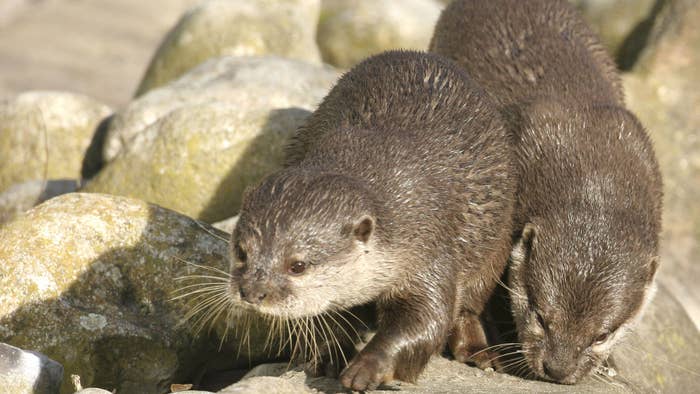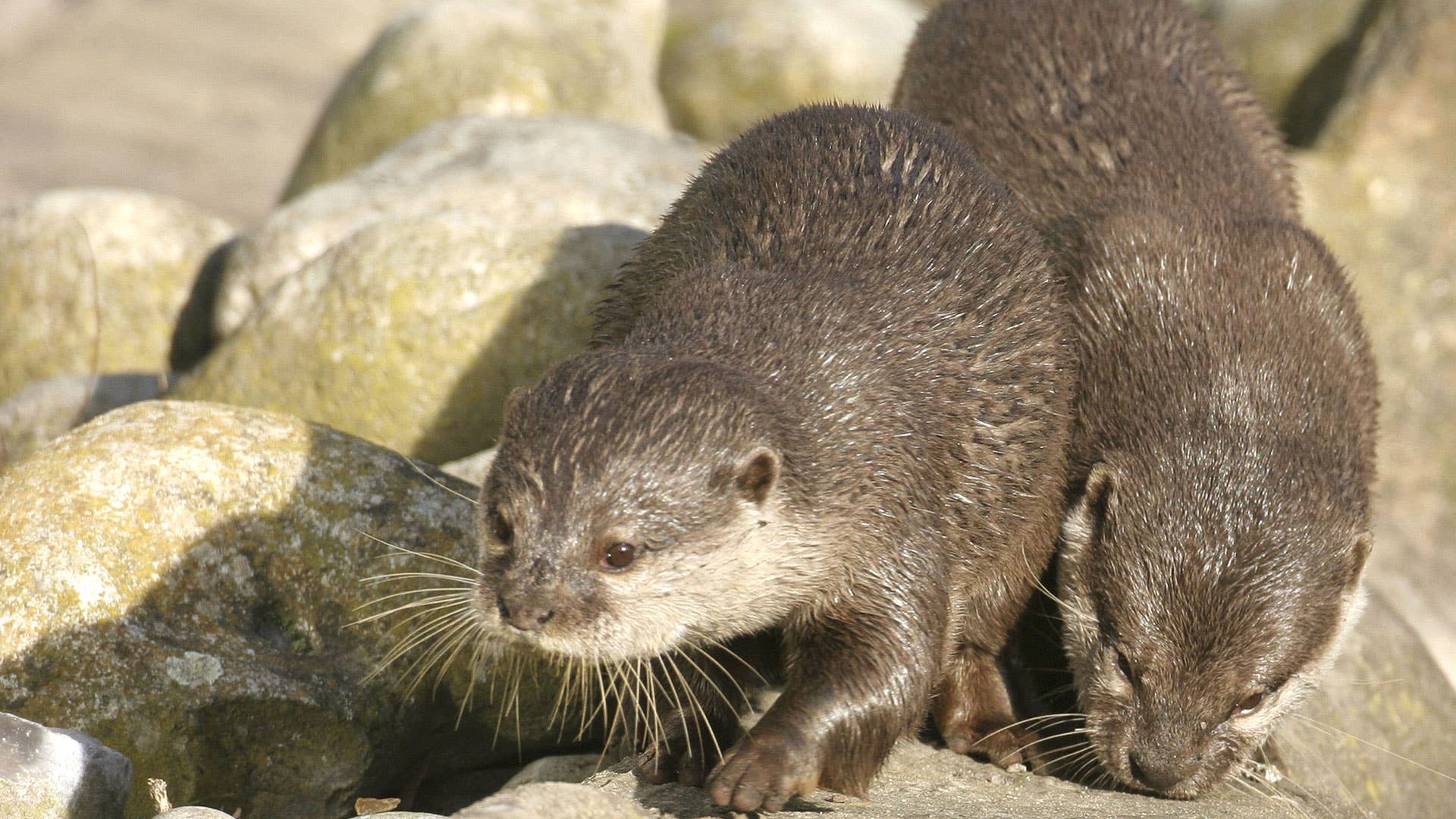
A set of Atlanta aquarium-based Asian small-clawed otters have contracted COVID-19. The good news? You ready? They’re expected to be okay. In the meantime they’ll be in hiding (off exhibit) until they bounce back.
“They began exhibiting mild respiratory symptoms such as sneezing, runny noses, mild lethargy, and some began coughing,” said the Georgia Aquarium in a Sunday post on Facebook. “Despite following all recommended health and safety protocols, it is suspected the otters may have acquired the infection from an asymptomatic staff member.”
The reason we used the non-specific “set” in the first sentence is A) It isn’t clear how many otters registered positive tests and B) We don’t know what a group of otters is called (a romp, we guess).
The aquarium doesn’t expect the sick animals to have “any long-term health issues.”
Later a press release regarding the news was added.
“Our Asian small-clawed otters are under very close monitoring by veterinarians and animal care team members. They have displayed only mild symptoms and we expect them all to make a full recovery,” said the Georgia Aquarium’s VP of animal and environmental health. “We are providing supportive care as needed so they can eat, rest and recover.”
The aquarium noted that animals giving the virus to people is “incredibly rare.” The animals don’t interact with guests anyway.
Multiple zoos have previously reported cases of COVID-19 in their animals. Those include some tigers and lions in Brooklyn, some gorillas in San Diego, and another tiger in Seattle.
The CDC has stated more info is needed to learn what animals can be stricken with the virus.
“We know that companion animals like cats and dogs, big cats in zoos or sanctuaries, gorillas in zoos, mink on farms, and a few other mammals can be infected with SARS-CoV-2, but we don’t yet know all of the animals that can get infected,” the CDC said on its website.

